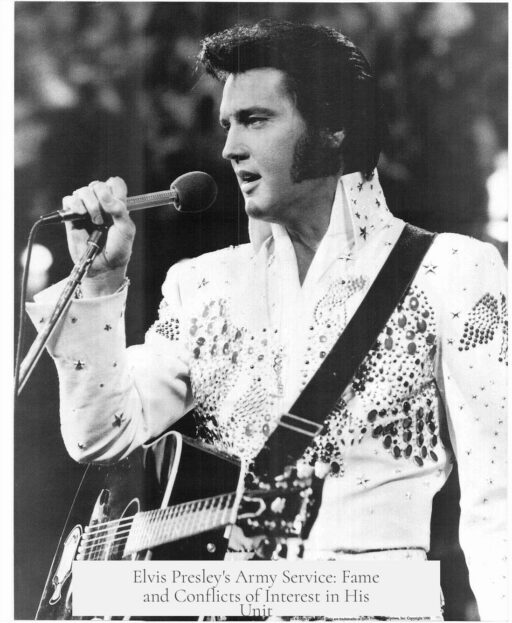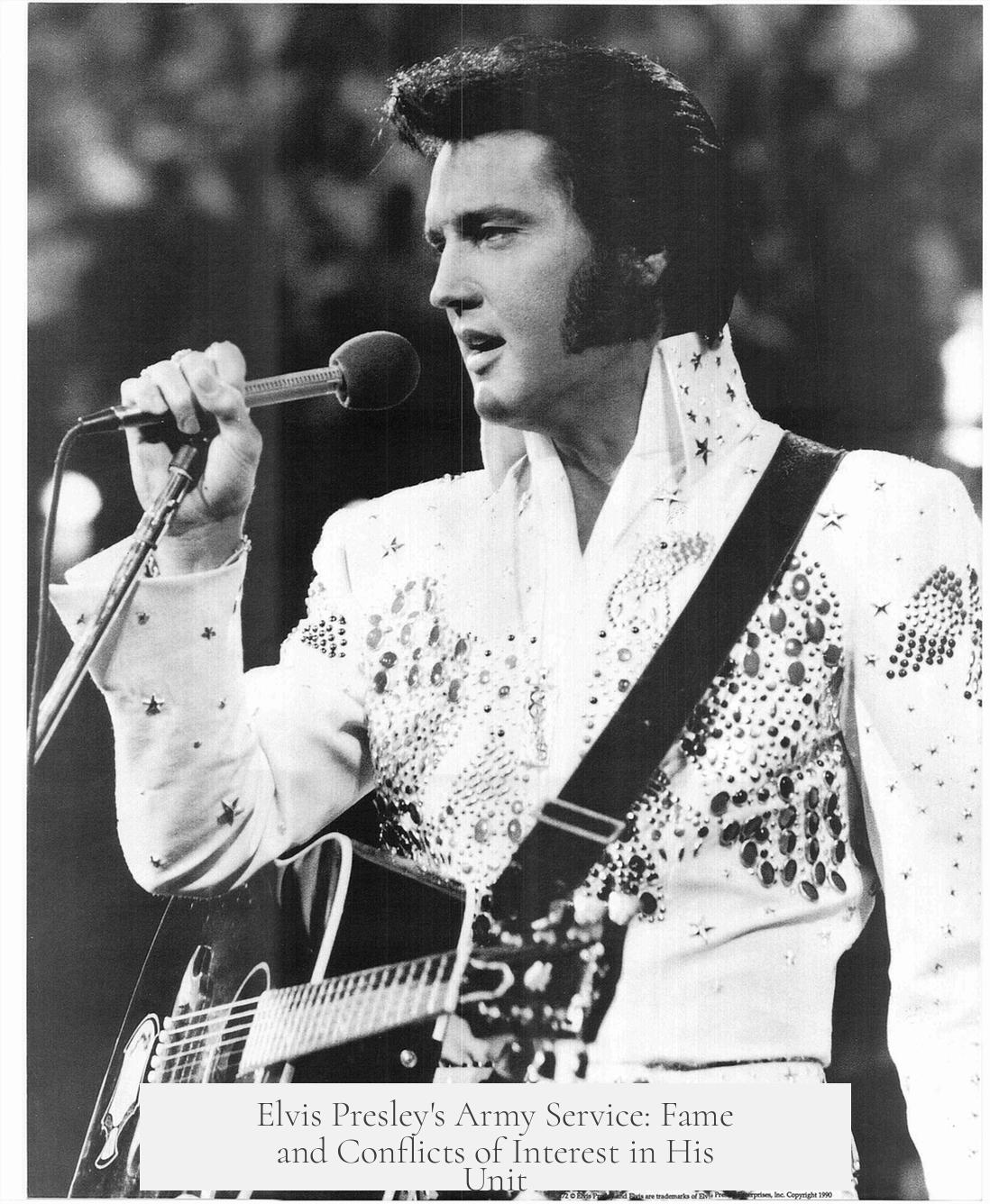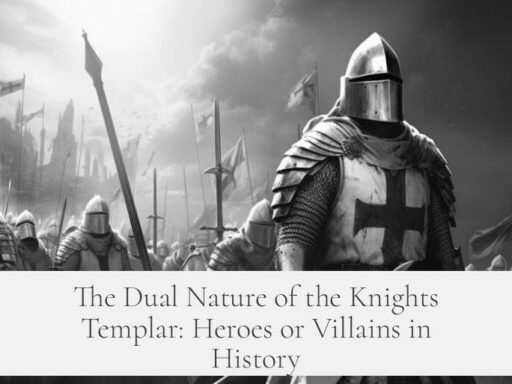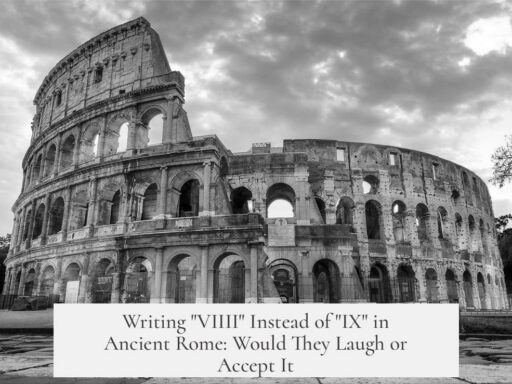Elvis Presley’s fame and popularity did not create significant conflicts of interest within his Army unit during his service from 1958 to 1960. His manager, Colonel Tom Parker, deliberately managed Elvis’s public exposure to ensure he experienced a conventional military life. Presley performed the same duties and training as his fellow soldiers and avoided special privileges during official duty.
Colonel Parker played a crucial role in normalizing Elvis’s military experience. He prohibited Presley from engaging in any show business activities while in the Army. Elvis recorded no music, took part in no films, and refrained from scheduled entertainment gigs during his service. He did perform informally—such as at a Christmas party in the barracks and briefly during leave in Paris—but these were exceptions. Aside from a few press conferences and radio interviews early and late in his service, Elvis maintained a low public profile.
Parker had clear reasons for this approach. He believed Elvis’s career could be sustained with pre-recorded material while he was away. More importantly, Parker insisted that Elvis be treated strictly as a soldier. He resisted all attempts to use Elvis as a public face for the Army or to organize troop shows featuring him. His contacts ensured that the Army complied with this policy, further limiting Elvis’s celebrity influence in the military context.
Within his unit, Elvis worked hard to be just another soldier. He completed all training, participated in field exercises, and marched alongside his comrades. His fellow soldiers initially expected him to receive special treatment but observed that he never sought favors or exceptions. He was a “good soldier” who engaged with the unit and exchanged stories about Hollywood in a way that fostered camaraderie rather than division.
Elvis’s official military roles were designed to minimize his public exposure. Initially stationed at Ray Kaserne, he served as a jeep driver for his commanding officer. Later, he drove for the Reconnaissance Platoon Sergeant Ira Jones. These assignments kept him out of the spotlight, away from situations where his celebrity could cause distractions. This practical positioning allowed him to integrate into the unit without disrupting daily operations.
Though Elvis’s assignments kept him relatively low-profile, the Army kept supervisory oversight of his placements. Being a driver for an officer ensured he was monitored closely. This reflects the Army’s focus on maintaining order and discipline, avoiding any disruption his fame might have caused.
A significant disparity did exist outside the official duties of the unit, stemming from Elvis’s considerable wealth. Unlike typical recruits, Presley was allowed to bring family and friends to Germany. His entourage included his father, grandmother, and close friends who were housed in hotels and later in a private residence funded by Elvis. This support network provided a comfortable personal environment distinctly different from the average soldier’s experience.
Elvis’s private life in Germany also highlighted his differences from fellow soldiers. He met Priscilla Beaulieu, the daughter of a U.S. Army officer, whom he later married. Prior relationships with several young women, permitted by their parents, also marked his personal life away from the unit. However, there is little evidence that these private affairs spilled into his military environment or caused tension among fellow soldiers.
In summary, Elvis’s fame did not generate major conflicts within his Army unit. His management and commanding officers deliberately minimized his public profile to maintain unit cohesion. Elvis accepted his military duties seriously and avoided leveraging his star status for special treatment. While his wealth and entourage distinguished him outside formal Army activities, his official service experience remained consistent with that of most enlisted men.
| Key Points on Elvis’s Army Service and Unit Relations |
|---|
| Manager Colonel Parker limited Elvis’s public exposure to ensure a standard military experience. |
| Elvis performed normal training and duties, resisting special treatment within the unit. |
| His military roles (jeep driver assignments) kept him out of the public eye and under supervision. |
| Personal wealth allowed an exclusive private entourage and living arrangements away from base. |
| No major conflicts or special privileges disrupted unit cohesion during his service. |
When Elvis Presley was in the Army, did his fame and popularity create any conflicts of interest in his unit?
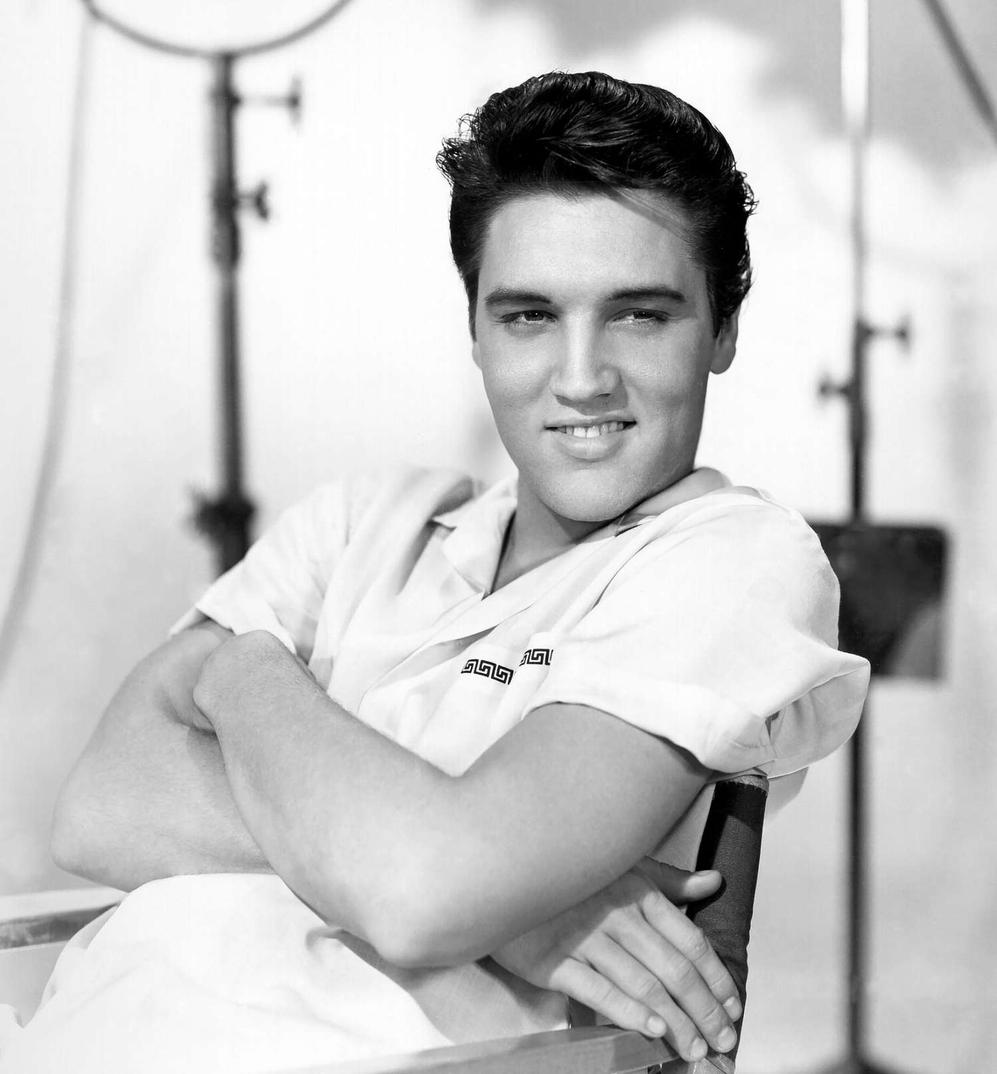
The short and sweet answer: not really. Elvis Presley’s stint in the U.S. Army between 1958 and 1960 was surprisingly straightforward, with few, if any, conflicts of interest caused by his fame. Despite being the biggest rock ‘n’ roll star on the planet, Elvis managed to blend into his unit pretty well. How did this happen, and what role did his fame play during his military service? Let’s break it down.
The Colonel’s Quiet Command: Parker’s Influence
Elvis wasn’t left to navigate his army life alone. Colonel Tom Parker—Elvis’s manager and self-styled “colonel”—exerted immense control over his army experience. Parker essentially forbade Elvis from leveraging his superstar status while in uniform. No concerts, no recording sessions, no glorified celebrity appearances. This was Parker’s big play to keep Elvis “just a soldier” during his service.
Parker had two main reasons:
- First, Parker believed Elvis’s record company had enough backlog material to keep fans happy without new songs being recorded during his service.
- Second, and more importantly, Parker insisted Elvis was in the army *to serve as a soldier*, not to be a public relations tool for the military or entertainment ploy.
This approach was supported by the military hierarchy. Parker’s contacts ensured the army did not push Elvis into the limelight as a promotional face. Instead, they treated him like any other recruit.
The Soldier Behind the Spotlight
Contrary to what many might expect, Elvis was reportedly one of “the boys” during his service. According to accounts from fellow soldiers, Elvis threw himself into army life headfirst, participating in every training session and march. Instead of demanding special privileges, he marched alongside his unit, attended classes, and followed the tough routine of boot camp just like everyone else.
Initially, Elvis was assigned as the jeep driver for company officers, a role that positioned him mostly away from the public eye—a prudent decision by the army. This choice was likely intended to minimize distractions and avoid turning the base into a fan zone. During his time in the Reconnaissance Platoon, Elvis developed skills like map reading and compass use, proving he was serious about his duties.
One might think the guys around him would have been starstruck or perhaps irritated by his fame. Surprisingly, it wasn’t so. Many were skeptical at first, expecting special treatment that never came. Elvis even managed to hold his own in banter and jokes about his celebrity status. He gave as good as he got, bonding with his peers, and not shying from jesting when the “big Hollywood star” label popped up.
It’s Not All Camouflage: The Wealth Factor
Of course, Elvis’s life after the barracks was a different story. Unlike many recruits, Elvis rolled in wealth. He was allowed to bring a small entourage to Germany, including family members like his father and grandmother, plus close friends. They stayed in upscale housing, quite unlike the typical soldier’s accommodation.
This private, off-duty life was worlds away from the rigors of army service. It provided Elvis with comfort and a semblance of normalcy. Additionally, it was in Germany that Elvis met Priscilla Beaulieu, a teenage daughter of an army captain, with whom he would eventually marry.
While Elvis’s entourage and social life were under the radar, it’s unclear how much his fellow soldiers or the army really knew about these aspects. The main point is that while Elvis steered clear of spotlight conflicts during army hours, his off-duty experiences were unique and privileged.
So, Were There Conflicts Within the Unit?
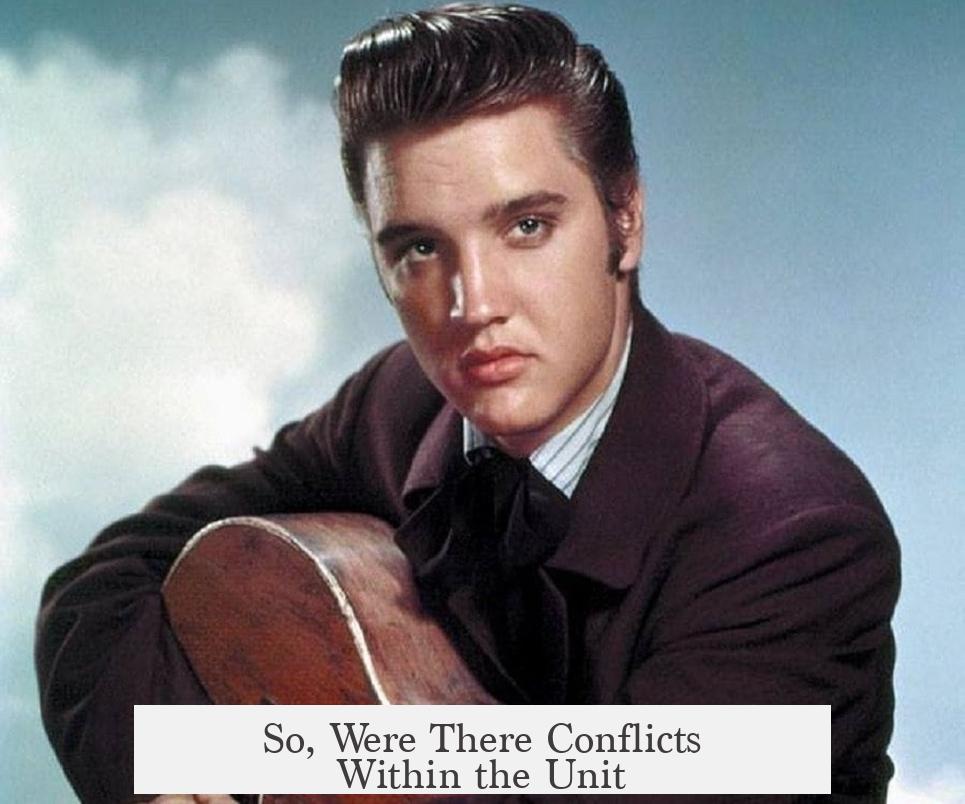
The evidence suggests no major clashes of interest in his unit during active service. The combination of Colonel Parker’s strict management, army policies to limit Elvis’s public exposure, and Elvis’s own efforts to be a regular soldier helped smooth the waters.
By keeping Elvis’s superstar persona subdued during duties, and assigning him roles that kept him under supervision and out of flashy positions, the army managed to maintain unit cohesion. Other soldiers respected him more for his attitude and discipline than resenting him for his fame.
Elvis was not a “normal” soldier in terms of his background and wealth, but he didn’t let that status create a wedge between himself and his peers. His willingness to participate fully and not seek special favors was key.
Why Does This Matter Today?
This story challenges common ideas about how celebrity status impacts teamwork and authority. Would a similar rulebook work for famous people joining disciplined organizations today? What if a modern pop icon was drafted or enlisted—would they be able to truly “be one of the guys”?
Elvis’s army experience shows a delicate balancing act between fame, responsibility, and humility. It’s proof that with the right mindset, even megastars can walk in everyone else’s boots—though perhaps not all the way to the barracks’ communal showers.
Practical Takeaways
- Clear Boundaries Matter: Defining what’s acceptable helps prevent conflicts when fame intersects with regular roles.
- Respect Builds Bridges: Elvis earned respect by not seeking special treatment, which minimized jealousy or friction.
- Leadership Shapes Culture: Having managers like Colonel Parker pushing for “normalcy” kept Elvis grounded.
- Off-Duty vs. On-Duty: Elvis’s private life and privileges didn’t spill over into conflicts during official duties.
Elvis Presley’s army chapter might not be the rock ‘n’ roll saga one expects. Instead, it’s a surprising tale of a superstar who stepped off stage lights to lace up combat boots without letting his fame shadow the mission.
“Elvis was a good soldier who could tell good stories about Hollywood, but when it came to the work, he was just one of the guys.”
Now, aren’t we all a little curious about how many of those Hollywood tales included the legend’s attempts to sneak in an impromptu jam session at a Christmas party or on a Paris leave? Maybe fame doesn’t always have to cause friction—it can just be quietly legendary.
